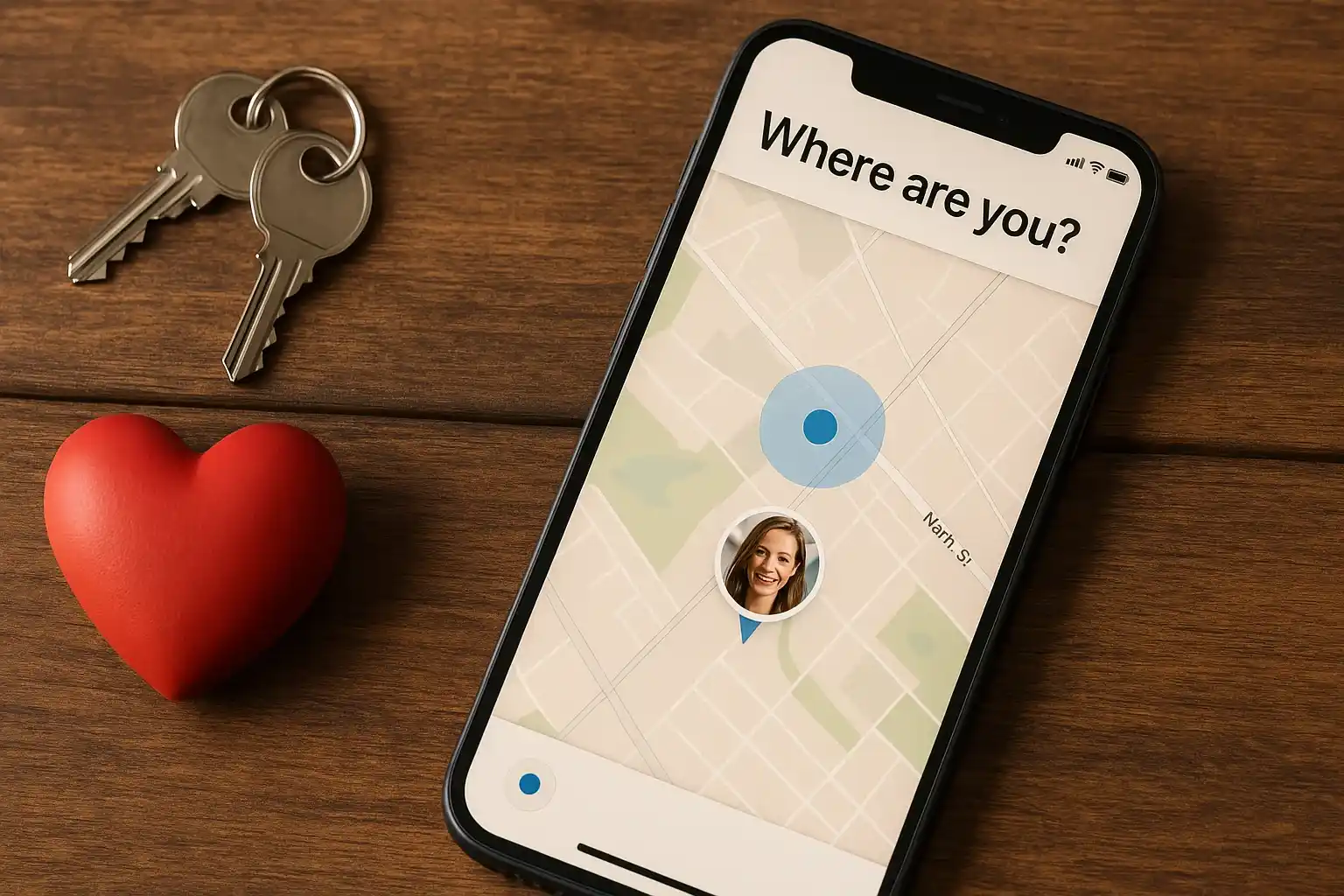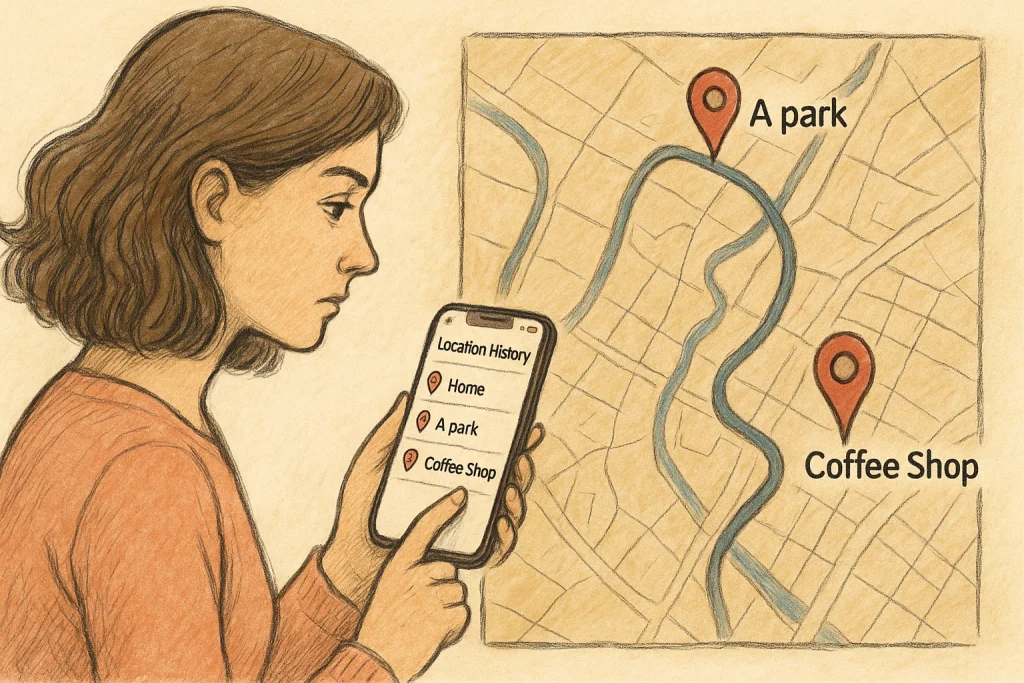If the question “where are you?” has ever arisen in your couple. – you’re not alone. That phrase is heard in hundreds of thousands of messages every day. Sometimes with concern. Sometimes with concern. And sometimes with blame. Modern technology offers a way to take the pressure off: real-time geolocation.
Not so long ago, the app to track kids phone was a tool for parental control only. Today, the same apps are becoming part of adult life as well – in romantic, partner and even marital relationships. But is it worth sharing your location? And most importantly, how to do it without feeling of constant control?
Today we are not talking about total control or digital jealousy. We will look at how geolocation can become the new language of care, how to agree on its use without scandals, and why apps like Number Tracker become a guarantee of peace of mind rather than a cause for drama.
Why We Want to Know Where Our Partner Is
Emotional Triggers Behind “No Answer”
Uncertainty breeds anxiety. When someone doesn’t respond to a message (especially when it’s expected), our brains fill in the blanks – often with worst-case scenarios. And if someone in a couple has an anxious attachment type, silence can feel like emotional abandonment, even if it’s not intentional.
In romantic relationships, digital silence can be louder than the real thing: an unanswered read receipt, the timestamp of the last visit stuck two hours back. So these fragments of data become fuel for anxiety. And this is where real-time location updates come to the rescue. Instead of seeing silence as rejection, couples can interpret presence as reassurance.
And it is not because of the clinginess of your partner. According to a 2024 study by Relate Research Group, 62% of respondents said they worry more about their partner’s safety now than five years ago – due to rising reports of urban crime, accidents, and unpredictable environments.
Location as a Love Language
Think of this: Your partner texts, “I’m home,” and you believe them. But when you see that little pin move across the map and land safely- there’s a different kind of relief – this is a feeling of involvement in each other’s lives.
In fact, many couples now view location sharing as a gesture of care, like checking in after a long day or sending a goodnight message. Thus, for them using location-sharing apps helps to reduce anxiety and fewer arguments related to lateness or unanswered texts: instead of tracking it is connecting.

Set Boundaries Wisely: How to Use Location Sharing Without Conflict
Agreements, Not Surveillance
If location-sharing is going to support the relationship – not strain it – then the conversation around it is just as important as the tech itself. The difference between comfort and control lies in how this tool is accepted, agreed upon, and maintained over time by both partners.
Let’s get one thing straight: secretly turning on location services or demanding access in the heat of an argument is not just unhealthy – it is a violation of trust. The goal of location sharing is mutual awareness, not secret monitoring. That is why the matter should be discussed before a single pin ever appears on the map.
A healthy dialogue could start like this: “Would it make sense to share our location when one of us is traveling or running late, just so we are not worrying unnecessarily?” This attitude invites collaboration, not compliance. Thus, think of it like sharing a calendar or grocery list – it is just another shared system that makes life easier.
Pro tip: Set clear “on/off” times. For example, share locations during solo night outings or long commutes—but agree it’s off during weekends at home. Boundaries make trust sustainable.
How Number Tracker Works — and Why It’s Ideal for Couples
If you are looking for a tool that respects your partner’s autonomy while keeping both of you connected, Number Tracker fits the bill. Unlike some location apps that feel more like digital ankle monitors, Number Tracker was created for your comfort with discretion, simplicity, and consent in mind.
Its tech foundation blends GPS, cellular triangulation, Wi-Fi positioning, and AI-powered behavior modeling to deliver ultra-precise location updates (even in places where reception is low).
What makes it work so well for couples:
- Real-time geolocation that doesn’t interrupt or drain the battery
- Safe places, so you get alerts only when something matters (e.g., they leave work or arrive home late)
- Shared routes and check-ins that don’t require constant texting
- Built-in AI assistant to solve your daily tasks and ask for help
Lifehack: Use Number Tracker as your “digital assistant”. You don’t hold your partner’s hand all the time to know he or she is close by; thus, you don’t need to keep a constant eye on him or her to stay in touch.

A Few Words About Healthy Rules for Shared Location
For all of this to work, boundaries matter. Thus, please refer to some tips below to make sure location-sharing remains a tool for care, not control:
- Talk about comfort zones: Everyone’s level of privacy is different. Some are fine with 24/7 tracking, others want limited sharing. There is no “right way” here, so just choose the one that works for you both.
- Use time frames, not permanent access: Set schedules – share locations during travel, late nights, or solo activities. Switch it off when it is not needed.
- Respect privacy: You don’t need to know everywhere they’ve been – just that they are still okay. Avoid checking history unless it’s been discussed.
Thing to remember: The healthiest relationships are built on transparency, not possession. When location tools like Number Tracker are used openly, mutually, and respectfully, they don’t replace trust – they reinforce it. In the end, it’s not “Where are you?” out of doubt, but “I’m glad you’re safe” out of love.
Trust and Verify (but Only If Necessary)
Geolocation in relationships is not a way to keep track, but an opportunity to be there for each other, even if you’re far away. When you know how to negotiate, trust, and use technology as a support rather than an excuse for drama, the dot on the map becomes a point of support rather than a point of control.




